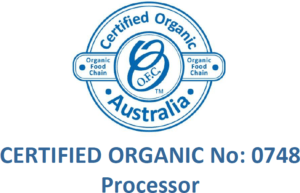The best way to stay healthy is to make sure your immune system is in great form. This will help prevent colds, flu infections and other more serious illnesses. Many foods contain substances that can boost your immune system and increase your resistance to illness. The following immune boosting foods, should be at the top of your list.
Tomatoes
The humble tomato, scores highly in immune boosting and cancer fighting foods. Along with a rich supply of vitamin C, farm fresh tomatoes are loaded with lycopene. This powerful antioxidant, gives them their luscious red colour, and has been shown to defend the body against cancer. They are an excellent source of the flavonoids quercertin and kaempferol which inhibit the growth of cancer cells. Tomatoes are second only to carrots as a great source of beta-carotene
The proof- In a review of 72 studies published in the Journal of the national cancer institute, Harvard Medical School, researcher Dr Edward Giovannucci, concluded that eating tomatoes and tomato based products high in lycopene, lowered the risk of many cancers more specifically prostate cancer. Nature & Health Dec 2001.
University of Milan researchers, discovered that a tomato rich. high lycopene diet for women, reduced the risk of breast cancer & reduced the free radical damage to
lymphatic cells by a third. Lycopene is fat soluble so is better absorbed by the body, when eaten with a small amount of fat, like a Bolognese or vegetable tomato juice or tomato based pasta sauce, rather than raw slices in a salad.
Garlic
Natural garlic has amazing health properties, including chemical properties to block cancer by the prevention of some carcinogens that damage DNA. Garlic seems to also trigger increased production of the immune system chemicals. These are the same substances used in immune-system based cancer therapies. Fresh garlic juice can kill various microorganisms, and some studies suggest that eating lots of chopped garlic lowers the risk of colon cancer by 35% & stomach cancer by 50%. Garlic has many health benefits especially for the cardio vascular system, & contains compounds that stop the growth of the ulcer causing Helicobacter pylori bacteria. Gastric ulcers have been identified as a strong risk for stomach cancer. How much garlic do you need? Benefits have been observed in people who eat 5 to 18 grams (about 2-6 cloves) of raw or lightly steamed garlic a week. Overcooking garlic can destroy the beneficial enzymes. Look for Australian grown garlic usually slightly purple in colour. Imported garlic often looks white and bleached and may contain growth inhibitors to allow the bulbs to be sold for up to a year. Add fresh, raw garlic to stir fries, & soups, toss into sauces, stews & casseroles, along with leeks, onions, chives, shallots, or add to bbq lamb cutlets or seafood.
Broccoli
The Australian Cancer Foundation values broccoli as one of the main anti-cancer foods. Broccoli contains Sulphoraphane, a chemical that occurs naturally, and in other cruciferous vegetables, like kale, cabbage, cauliflower, and bok choy, brussel sprouts & mustard or turnip greens. Sulphoraphane, stimulates the body’s natural production of substances called Phase II detoxification enzymes. These enzymes destroy carcinogens (cancer causing substances) & free radicals, before they can attack cells.Cruciferous vegetables are also loaded with indole-3-carbinol (I3C), a phytochemical shown to inhibit the growth of oestrogen responsive cancer cells in breast tissue.When scientists fed rats a high broccoli diet, these animals developed half the no. of cancer tumours and smaller in size that animals on normal feed. Lightly steaming broccoli or eaten raw is best.
Kiwifruit
When it comes to antioxidants, kiwifruit comes out on top, even beating citrus. Kiwis contain more polyphenols than oranges and grapefruit, according to scientists from Japan’s Teikyo University. Kiwifruit may help prevent the development of diseases caused by oxidative stress, such as heart failure, cancer & Parkinson’s.
Blueberries
Anthocyanins, the pigments that give blueberries their stunning colour , have potent immune stimulating properties. As they are anti-oxidants, anthocyanins protect capillaries (small blood vessels) from oxidative damage, and promote brisk blood flow through the circulatory system. Protection against oxidation also allows good circulation of lymph, the immune cell carrying fluid of the body. Blueberries, are also rich in tannins, the substances also found in teas. Research suggests these tannins, prevent Ecoli bacteria from sticking to the cells that line the urinary tract and cause infection. (Rutgers University). When Researchers at the Jean Mayer USDA Human Nutrition Centre for Aging, Tufts University USA, measured the levels of anti-oxidants in 40 different fruits and vegetables, blueberries were near the top. A 125g serving of fresh blueberries, supplies enough antioxidants to almost double the average Australians daily intake. Rutgers research suggests, that a daily handful of chemical free blueberries or cranberries, assist with the prevention of urinary tract infections and promote over good health and well being. Other berries including raspberries, blackberries and strawberries, have the same cancer fighting phyto-chemicals. They contain ellagic acid and fibre-seeds that inhibit cancers.
Citrus Fruits – Lemons, Oranges
Lemons, Oranges, Grapefruits, Limes, Tangerines, are all excellent sources of the plant form of Vitamin C, Ascorbic acid. Ascorbic acid is a ‘nutritional superstar’, with many immune system functions. These include enhancing the movement of phagocytes in the blood to clean up blood cells, boosting natural killer cell (NK) activity, building and maintaining mucous membranes and collagen (tissue for wound healing). Vitamin C is also required for the manufacture of hormones that help the body deal with stress, as it helps convert toxins to water soluble substances so they can be easily excreted from the body. It is one of the more than 100 phytochemicals that citrus contains. Oranges and grapefruits are also loaded with naringenin, which works against tumour formation and HIV infection. The oil in citrus rind contains limonene, which researchers think helps enzymes deactivate cancer causing substances in the body and shrink and slow down cell division in tumours.
Vitamin C’s importance for health cannot be disputed, as many studies have found an unmistakable correlation between low blood levels of Vitamin C, and increased risk of cancer, especially cancer of the pancreas, stomach, oesophagus and mouth.
Most animals manufacture their own Vitamin C, however humans seem to have lost the ability to do so. The body doesnot store Vitamin C, or B, and any excess is eliminated through urine. It is best to get a small amount of Vit. C a day, and to benefit from Limonene, add a twist of lemon or citrus peel to your tea.
Carrots
Carrots and other fruits and vegetables with a deep orange colour (sweet potato, rockmelon and mangoes), contain large amounts of nutrients called carotenoids, some of which the body converts to Vitamin A. many studies have demonstrated that Vit A reduces the incidence and severity of infectious illnesses, by helping to keep the mucous membranes in healthy and in tact. Vitamin A also boosts antibody response and increases white blood cell proliferation. Sweet potato has been shown to stabilize blood-sugar levels by lowering insulin resistance, & contain a high amount of fibre which helps reduce “bad” LDL cholesterol levels in the body. People with higher levels of beta-carotene, have lower odds of developing cancer and heart disease. In a Tufts University study, taking 15-60mg of carotenoids daily, improved immune function especially in the elderly. Aim to eat about 1 cup of cooked carrots a day. As with all vegetables, lightly cooking softens the cell walls so you absorb the plant better.
Shiitake Mushrooms
Traditional Chinese herbalists suggest that shiitake mushrooms protect the immune system by activating Qi-the life force. Mushrooms contain disease fighting substances, eg. lentinan- seems to help the body fight cancer by stimulating and revving up the production of Tcells, macrophages and NK cells. Studies suggest 90g of fresh or 10g dired shiitake mushroom as a small dose to boost the immune system. Other medicinal mushrooms include maitake. Consult your herbalist or naturopath.
Amy Nancarrow Nature & Health Dec 2001


